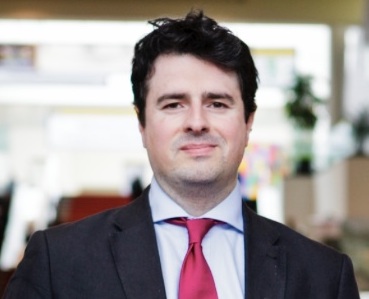The charity Brain Tumour Support will help anyone affected by any type of brain tumour, at any point from diagnosis and for as long as the support is needed.
According to Cancer Research UK there are over 12,000 new cases of brain tumour each year and since the early 1970s, brain, other central nervous system (CNS) and intracranial tumours (malignant only) mortality rates have increased by more than half (53%) in the UK.
 London is lucky to have one of the world's best brain cancer centres of excellence, with Queen Square National Hospital for Neurology and Neurosurgery (NHNN). Part of University College London (UCL) Queen Square Institute of Neurology, NNHN is the major medical establishment for teaching, training, and research into brain tumours. Four of the world’s top twelve most cited authors in Neurosciences and Behaviour are currently based at Queen’s Square, and the Faculty of Brain Sciences, is the highest rated UK institution for neuroscience research output, with its own Nobel Laureate. Indeed, UCL is home to 29 Nobel Laureates. Consultant brain experts include the neurosurgeons Ms Mary Murphy Clinical Director of Neurosurgery, Mr Jonathan Hyam (pictured right) and Mr Patrick Grover, who are also part of London Brain School.
London is lucky to have one of the world's best brain cancer centres of excellence, with Queen Square National Hospital for Neurology and Neurosurgery (NHNN). Part of University College London (UCL) Queen Square Institute of Neurology, NNHN is the major medical establishment for teaching, training, and research into brain tumours. Four of the world’s top twelve most cited authors in Neurosciences and Behaviour are currently based at Queen’s Square, and the Faculty of Brain Sciences, is the highest rated UK institution for neuroscience research output, with its own Nobel Laureate. Indeed, UCL is home to 29 Nobel Laureates. Consultant brain experts include the neurosurgeons Ms Mary Murphy Clinical Director of Neurosurgery, Mr Jonathan Hyam (pictured right) and Mr Patrick Grover, who are also part of London Brain School.
Although the incidence of benign brain tumours is reported to be on the increase (NB not malignant tumours), this is probably due to better detection with improvements in diagnostic imaging techniques. However, this means that support services for both patients and their families are vital to meet the growing need.
 The charity Brain Tumour Support's celebrity ambassadors, comedian Joel Dommett and his wife, model Hannah Cooper (pictured), said: “We want everyone to get behind Brain Tumour Support during Brain Tumour Awareness month and to help raise vital funds through the charity’s ‘Sponsor a Support Professional’ initiative.
The charity Brain Tumour Support's celebrity ambassadors, comedian Joel Dommett and his wife, model Hannah Cooper (pictured), said: “We want everyone to get behind Brain Tumour Support during Brain Tumour Awareness month and to help raise vital funds through the charity’s ‘Sponsor a Support Professional’ initiative.
"The services that charity Brain Tumour Support provides are needed more than ever to help patients and families deal with the complex challenges that can follow any brain tumour diagnosis. There are over 120 different types of brain tumour, and the more often quoted statistics around high grade tumours clearly show what a devastating diagnosis this is to receive. However, the lower grade tumours, despite often being called 'benign', can also be life limiting and life changing."
The charity's ambassadors all have personal understanding of the devastating impact that a brain tumour diagnosis can have on the lives of not just the individual but family and loved ones too. They have also all experienced the difference that finding the right support makes. That's why this March they are heading up the charity's campaign to spread the message 'Support matters - Because you matter' and help raise vital funds through the Sponsor a Support Professional initiative. #SupportMatters #BecauseYouMatter
Please consider sponsoring a Support Professional today by donating at:
www.braintumoursupport.co.uk/btam2022
CEO of Brain Tumour Support, Tina Mitchell Skinner, said, “We are very proud of the services we have provided since the charity began its work in 2003. This year we want to increase the support we currently provide and grow the number of Support Professionals we have, and to do this we need to raise £20,000 for each additional full time Support Professional.”
The charity provides support to patients as well as families, carers and loved ones who are dealing day to day with the impact of a brain tumour. They provide specialist, tailored services around the UK through one-to-one and group support, as well as online and telephone support and specialist counselling.







